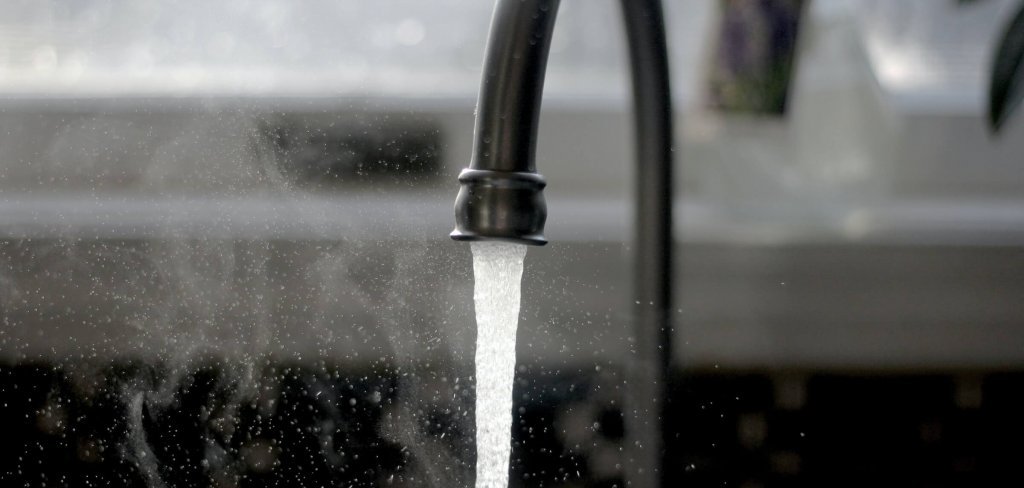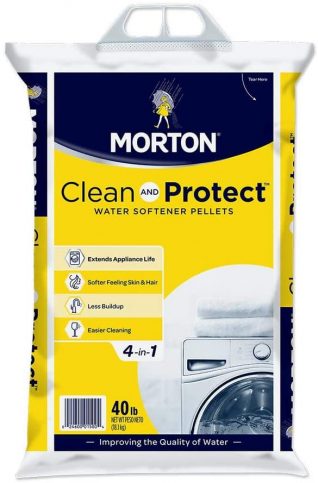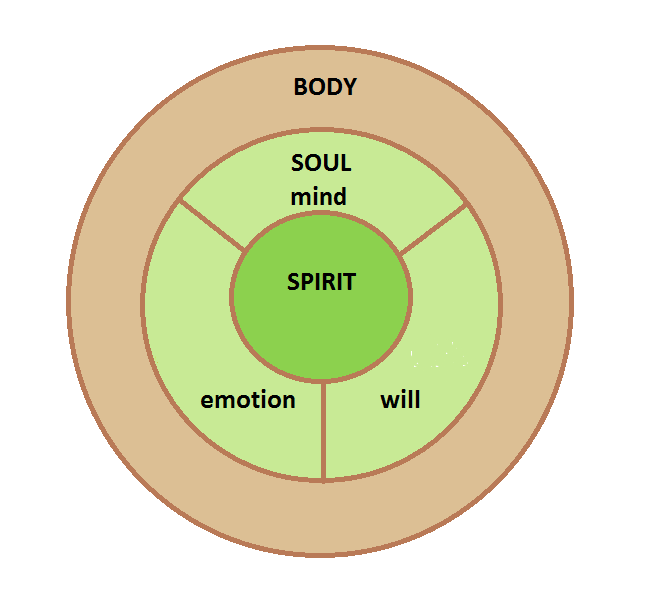Installing a water softener system may solve one issue while rearing another problem. If you are like me, I was super excited to have soft water and not deal with the complications of hard water. Hard water contains a higher level of calcium and magnesium which can wreak havoc on your plumbing system. Besides the normal deposits that build up, it can get so bad that it will clog up your pipes. For myself, those issues were minimal. What really affected me was my skin sensitivity to our house’s water. It left my skin dry and irritated and I never felt clean. We opted for a water softener system in hopes that it would take care of the situation. Sadly, at first I again experienced issues with soft water too! But with a few modifications I was able to finally combat my body’s issues with water. If you don’t have a water softener system, you’ll want to read this article and know both sides of the equation before you make the plunge.
What is hard water and do I have it?
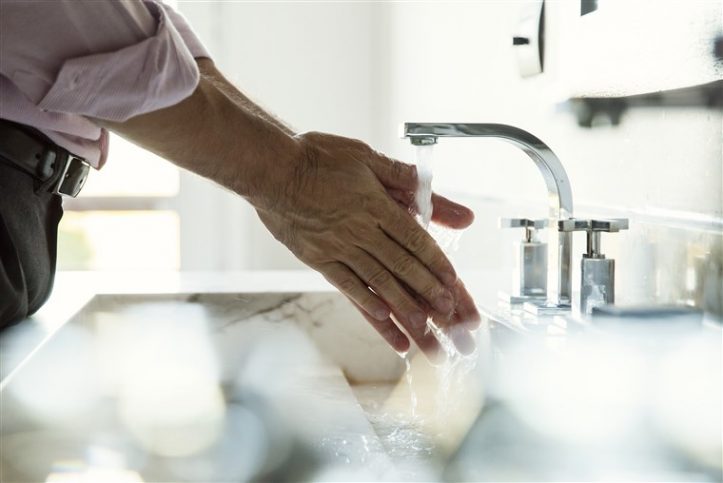
Hard water is water that has a high amount of calcium, magnesium or other trace minerals. Hard water is safe to drink, but can be a nuisance to the household. Did you know 85% of all Americans have hard water? Hard water is based on a scale using gpg (grain per gallon). Anything above 3 gpg is considered hard water.
Now, do you know if your house has hard water? A couple of easy tests is by inspecting sinks, faucets or shower heads and looking for an increased amount of buildup. If you are on this article you probably do! Another test is by rinsing your hands in just water and seeing if your hands glide smoothly against each other. If they feel rubbery or squeaky, that indicates hard water. If you want an exact science you can contact your local water station and see if they’ll tell you what gpg is for your neighborhood or you can send in a water sample for testing.
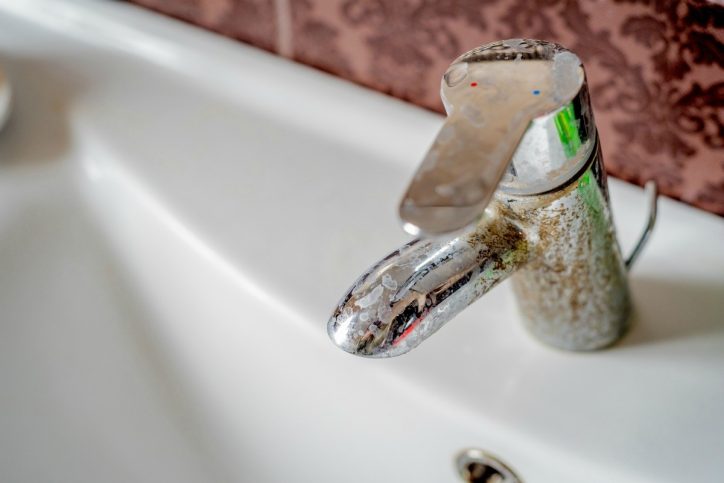
Sending in a sample will be good to benchmark where you are today versus where you will be after a water softener system. It would also be good to know if there are any other toxic chemicals are present such as chlorine, lead or even arsenic.
I have sensitive skin, does soft water help?
For most people, yes! The process of obtaining soft water takes away a lot of irritants that cause irritated skin. But that’s not the case for some. The water softening process uses salt or potassium chloride pellets as part of the cleansing process which could introduce an increased amount of sodium while subtracting all of the other minerals. The water contains trace amounts of sodium which, to most, won’t affect the taste of water. Don’t worry, you aren’t drinking ocean water. While the water softener process works for the majority of people, there are still some that experience sensitive skin. There are a few tests and solutions you can conduct to rid of the problem.
Do you react to local water?
The first you should do if you feel you may be sensitive to your softened water is to test the local water. Go to a water source that isn’t connected to your system and see if you get the same reactions. Perhaps a nearby hose, water fountain or shower facility. If you don’t get any reaction, you can narrow it down to something in your water system. If you do get a reaction, your problem isn’t unique to your house.
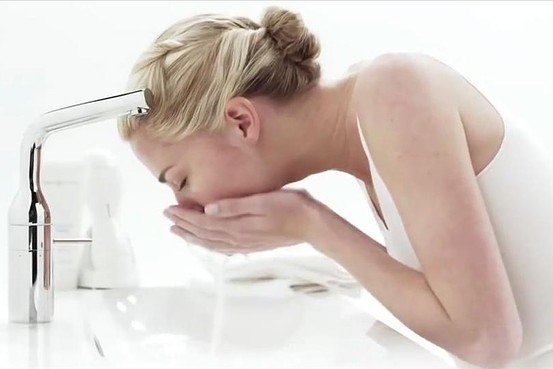
What is in your soft water?
There are supposed to be regulations around the purity of household water but there are plenty of cases that slip through the cracks. It is always a good idea to test the water in your house for contaminants. All water is allowed to have trace amounts of chemicals; chemicals you do not want. And since it’s allowed, there are some chemicals that may not cause reactions with the vast majority of people but will with you. How lucky are you? In all seriousness, don’t play victim and find out the cause. Everyone deserves to be able to shower in peace.
One chemical I see pop up often is chlorine. Yes, there can be excess chlorine in your water which is a well known contaminant. Call up your local water provider or send in a sample via mail or buy a water tester to get to the bottom of your issue.
What salt pellets are you using in your water softener system?
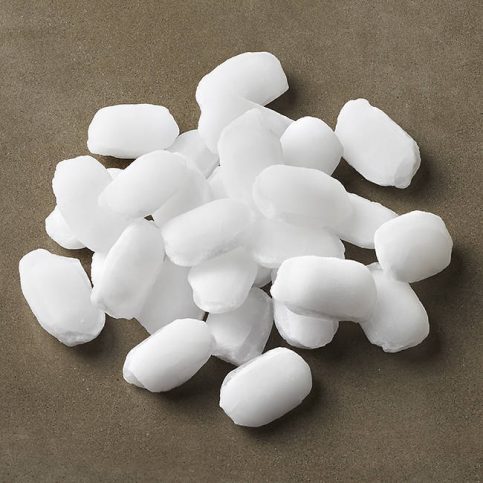
There are cases where the actual salt you use in your water softener system directly contributes to your skin irritation. In this case you have a few options. You have to make sure you are using the correct materials. Often times you’ll see water softener salt carry extra chemicals besides salt. Needless to say, these extra chemicals can be irritants to you. Don’t discount the actual beads in your water softener system either. Even though the salt is supposed to clean these beads, the beads may be wearing down to the point where the salt isn’t cleaning the beads and you are reacting to those agents. Otherwise, here are the best options for salt to use in your water softener system.
Morton Clean and Protect
Using salt from Morton is the gold standard for water softener. The only ingredient is salt! We like this brand because they are reliable and have tons of great reviews. We don’t taste any salt in the water and it does a good job cleaning out our system when we use this product. Like all salt bags, it is heavy, but it is convenient having it dropped at your doorstep. No more having to make a trip to your local hardware store, waiting in lines and lugging back several heavy bags.
Diamond Crystal Bright & Soft Series
Diamond Crystal is another high quality brand with its salt being produced in the United States. If Morton’s is out of stock, or shipping is unavailable, go with Diamond Crystal. Salt is salt, but what you are looking for is 99%+ purity, which Diamond Crystal has. This comes in a 50 pound bag and is around the same price as Morton’s, giving you more bang for your buck
Morton Potassium Chloride Pellets
I mentioned earlier that there are two types of water softener salt. This one is made with Potassium Chloride. You may find you are less sensitive to this and another great effect is that you don’t taste any salt in your water. For the first two products, I don’t taste any salt, but different pallets vary. These pellets cost about double as salt, but it is worth to spend the extra dollars if it results in less sensitive skin and more enjoying life.
Conclusion
In this article, we’ve presented several different things you can do, right now, to find out why you have sensitive skin and are reacting to the softened water. It could be due to other contaminants such as chlorine, or perhaps you are sensitive to a brand of salt. We hope we give you some inspiration to never accept mediocrity when it comes to your home’s water. Everyone deserves good quality water!

